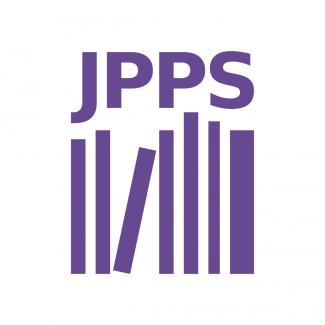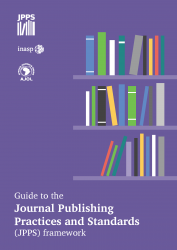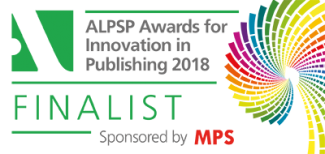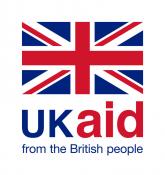Journal Publishing Practices and Standards (JPPS)

Launched by INASP and African Journals Online in 2017, Journal Publishing Practices and Standards (JPPS) is a unique framework for providing accreditation and support for journals in the Global South hosted on the Journals Online platforms (JOLs). The framework was developed and launched as part of the DFID- and Sida-funded Strengthening Research and Knowledge Systems (SRKS) programme.
The Journal Publishing Practices and Standards were developed as a concerted, systematic effort to improve quality and to strengthen the reputation of Southern publishing amongst local and international research communities.
- Reassures readers and authors that journals meet international standards to a particular level
- Guides journal editors on improving publishing processes
- Acknowledges journals that have attained internationally recognized publishing standards
"Ensuring that high-quality Southern journals are trusted as part of local and global scholarship is essential for redressing scholarly imbalances and helping the Sustainable Development Goals to be realized.”
Sioux Cumming, Programme Manager for INASP’s Journals Online project
The framework as launched in September 2017. The initial assessments of journals on the Journal Online Platform was completed in December 2017, and assessment levels published on the JPPS website from March 2018.
The framework is available in English, Spanish and French.
Journal assessment process
The JPPS framework provides detailed assessment criteria for the quality of publishing practices of southern journals. The criteria were compiled by looking at the inclusion standards set out by international journal indices and relevant organizations’ publishing and editorial guidelines. The JPPS criteria have been developed this way to aid comparison and interoperability of the frameworks internationally, as well as making sure they are attainable and relevant for journals from the South. (Read more about how and why we created JPPS).
Journals assessed against the JPPS criteria are given one of six levels: three stars; two stars; one star; no star; new title; and inactive title. Assessment outputs include:
- An assessment record for each journal.
- A report sent to the journal editor on any areas of the journal that need improvement, emphasizing those criteria that need to be met to qualify for a higher level.
- A display of the JPPS level for each journal on the journal website, with a link to a document explaining what that means in terms of publishing practices and standards that are being achieved by the journal at the time of assessment.
Training, mentoring and advisory support
INASP will work with journal editors and editorial boards to build capacity and knowledge in international publishing standards and the JPPS.
INASP will provide face-to-face training, mentoring support and online training using courses and materials that have been developed specifically for journal editors working in developing country contexts. The materials used will include the comprehensive INASP Editors Handbook, the Journal Quality Online course, and an online course developed to support editors with the implementation of the JPPS framework will be developed, piloted and run as part of this project.
JPPS is already proving to be a powerful incentive for editors to improve.
JPPS was a finalist for the 2018 ALPSP Award for Innovation in Publishing.




